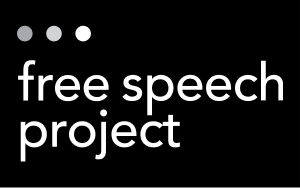German soccer stadiums were a little more colorful than usual today. Well, except for one.
On Wednesday, Munich’s Allianz Arena played host to Germany and Hungary in the final matchday of Group F action in the Euro 2020 tournament (held in 2021 following COVID-19 delays). While the match ended in a tough 2-2 draw, a much larger fight over acceptance and sexual identity loomed over the game.
The mayor of Munich had requested that UEFA—the governing body of European soccer—allow the stadium to light up its exterior in rainbow colors. Though the UEFA recently added a rainbow to its own logo as a show of alleged solidarity with LGBTQ equality, the continental soccer confederation denied Munich’s request, deeming the move too political. This denial raised rancor among German fans and elicited significant pro-LGBTQ protests in Germany during the match.
Advertisement
Advertisement
Advertisement
UEFA saw the lighting up of Allianz as a political statement because of Germany’s final Euro group stage opponent: Hungary. The country, led by authoritarian strongman Prime Minister Viktor Orbán—known for systematically deconstructing Hungarian democracy and enforcing literal thought crime laws—has recently drawn international ire for new anti-LGBTQ+ policies. While the new law claims to limit depictions of pedophilia to youth, in effect the legislation puts significant restrictions on the depiction of homosexuality in cultural products like television shows. (God forbid Hungarian children watch Modern Family.) So, when Munich made its stadium lighting request, UEFA quickly connected the dots.
Advertisement
Advertisement
In response to the rainbow lighting ban, international soccer stars and teams across Germany went forth with LGBTQ inclusive symbolism anyway. In fact, it seems the move has only worked to spur international soccer support for the equality cause during Pride Month. Spanish and English league stars like Antoine Griezmann and Katie McCabe went to social media to express their displeasure with the decision. Politicians around Germany have derided UEFA for accepting money from authoritarian leaders while failing to live up to their alleged values of equality. Other stadiums and clubs around Germany not associated with hosting Euro 2020 matches announced plans to light up their stadiums during the Germany-Hungary tilt—as UEFA can’t control their actions.
This rainbow chaos caps off a tumultuous period surrounding gay rights at the Euros as UEFA tries as hard as it can to maintain its alleged political neutrality. This stance is not an uncommon one among major international sporting organizations like UEFA, FIFA, and the IOC. And the Hungarian government has overwhelmingly, and expectedly, applauded UEFA’s decision, with Hungarian foreign minister Peter Szijjarto declaring that “It is extremely harmful … to mix sports and politics. Historical experience shows that this is a bad thing, and the Germans in particular know this very well.”
Advertisement
Advertisement
Sadly for Szijjarto, sports and politics will almost always mix—sports will never exist in a vacuum, especially not an international behemoth like soccer. This week, FIFA sanctioned Mexico for the repeated recurrence of anti-gay chants. Meanwhile, UEFA investigated whether the captain of the German National Team was violating its policy against political statements when he wore a rainbow armband with his uniform in support of LGBTQ rights. In the end, UEFA decided the armband was OK, saying on Twitter: “[T]he armband has been assessed as a team symbol for diversity and thus for a ‘good cause’.” (So, as far as UEFA rainbow policies go: yes to armbands, yes to logos, but no to stadium lights?) Despite arguments otherwise, it seems entirely shortsighted for UEFA and international sporting organizations to protect authoritarian leaders in sporting events by selectively applying rules against political demonstrations—especially demonstrations as innocuous as putting some lights up around a soccer stadium.
Future Tense is a partnership of Slate, New America, and Arizona State University that examines emerging technologies, public policy, and society.








